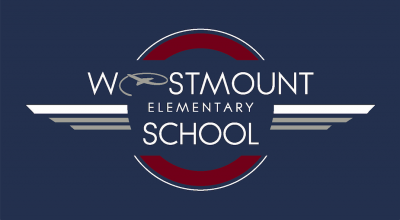Communication Between Home and School
Communication Plan for Student Learning
INTRODUCTION
It is important to communicate clearly and frequently with parents/guardians about their children’s progress in school. This document attempts to outline the ways our team will keep parents/guardians informed.
METHODS TO ASSESS LEARNING
Teachers gather information about what students learn, how students learn and growth they have made in a variety of ways. In planning assessments, teachers use a broad range of strategies to give students multiple opportunities to demonstrate their knowledge, skills and attitudes. By using a variety of methods teachers give students the opportunity of showing their best work.
At Westmount Elementary teachers use a variety of ways to assess student performance. These may include, but are not limited to:
◾Formal and informal observations
◾Checklists
◾Anecdotal records
◾Conferences/interviews
◾Daily work samples/Student Portfolios
◾Projects, presentations, reports
◾Student journals
◾Test/quizzes
◾Peer and self-evaluation – students assessing their own and each other’s work using clear guidelines
◾Rubrics
◾Sharing circles
The Nova Scotia Department of Education and Early Childhood Development provides curriculum guides that describe the learning outcomes for each curriculum area. Teachers use these outcomes in planning, delivering and assessing student learning.
HOW WE COMMUNICATE STUDENT LEARNING
Information about learning will be communicated to students, parents/guardians and teachers in a variety of ways. These methods include, but are not limited to:
◾Curriculum sessions for parents/guardians
◾Weekly school emails and/or class newsletters
◾Calendars
◾Special events
◾Student homework
◾Work samples/Student Portfolios
◾Read-at-home programs
◾Writing/reading folders
◾Journals
◾Projects
◾Displays
◾Phone calls/emails
◾Performances/assemblies
◾Conferences/meetings
◾Report cards
◾Notes in student agenda’s/communication book
Some of these possible ways for communicating student learning in relation to the expected outcomes will be undertaken on a school-wide basis and others are particular to individual classes and teachers. There are specific times set aside to have teachers inform parents, formally and informally, about student progress. While much communication between home and school takes place on an informal basis, there are formal written reporting periods. Three times during the year (November, March, June) the school will send home “formal” reports that are written in narrative form and refer to the curriculum outcomes and also include (for students in grades 1-6) developmental indicators or letter grades for all subjects.
PROGRAM PLANNING TEAM
Most students have success following the prescribed curriculum as outlines in the Department of Education and Early Childhood Development’s learning outcomes documents. In some cases students require some additional support from the resource teacher to help them keep pace. In some cases, formalized Adaptations are required for the student to achieve the learning outcomes. There are times when a student is unable to meet the Public School Program. There are a number of clear steps that must be taken that involve families to determine what information is required to program effectively for the student and/or whether an individual program plan (IPP) is required. Prior to the formal writing of an individual program plan (IPP) parents will be informed and involved.
PARENT CONCERN PROTOCOL
When concerns arise about a student’s progress, parents/guardians are asked to first discuss the matter with the classroom teacher. If the matter is not resolved the parent/guardian should approach the school administration. The goal in these discussions is to work towards the best interest of the student. Such discussions are best held at agreed upon appointment times. If the matter is not resolved at the administration level, the parent/guardian is able to formally direct the concern to supervisory staff.
CLOSING
Our hope is that our communication plan provides parents/guardians with lots of opportunities to understand their children’s progress. Each September, teachers begin the process of getting to know the students and helping them progress academically and social-emotionally. We trust this year will be one of great growth for your children and a year in which we communicate with each other effectively.
